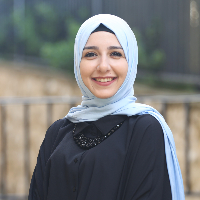After the devastating Beirut blasts, Hanine Yousef and her team at the Union of Relief and Development Associations in Lebanon are working to support survivors and rebuild their city.

A: Union of Relief and Development Associations (URDA) is a Lebanese non-governmental organization dedicated to ensuring the human rights of the most vulnerable groups in Lebanon. In June 2012, the Syrian refugee crisis reached its peak in Lebanon. Immediately, 30 humanitarian non-governmental organizations felt the need to coordinate their efforts under one strong umbrella, paving the way for the union.
URDA provides services through seven different humanitarian sectors: shelter, relief, healthcare, education, protection, development, and sponsorship. Through its sectors, URDA seeks to assist, care, and develop all human beings in Lebanon. It also deals with the affairs of Lebanese society and refugees (Palestinians and Syrians) with purely humanitarian work that balances sustainable development with disaster intervention.
A: Lebanon has been facing many challenges for decades. The events followed the revolution of Oct. 17 and the protests that took place in various regions against the deteriorating economic and social conditions in the country. They still have many negative repercussions on security and economic levels, particularly the rise of the US dollar and the depreciation of the Lebanese pound in light of the high prices of commodities.
In February, the first cases of COVID-19 were reported in Lebanon, which worsened the situation. The general mobilization and lockdown were imposed without the Lebanese state securing citizens’ daily sustenance, and the number of people infected with COVID-19 to date exceeds 5,900. The catastrophic explosion in Beirut has tarnished the features of the Lebanese capital, and rescue work continues in the middle of streets which can be compared to warzones. At least 200 people were killed, and dozens remain missing. More than 5,000 people were injured and 300,000 have become displaced in the city—in a country that is economically and financially unable to rebuild what has been destroyed and find solutions for the affected.
The catastrophic explosion in Beirut has tarnished the features of the Lebanese capital, and rescue work continues in the middle of streets which can be compared to warzones.
A: One of our relief team members said the situation in Beirut during field visits was unbearable for many, especially for our volunteers who have never witnessed that much pain and suffering. They walked through Beirut’s streets, seeing people wounded, displaced, and confused, but so resilient, collecting what was left of their houses and helping their neighbors.
URDA teams inspected the aftermath of the explosion in Beirut, and after a comprehensive field survey of all the damage, we activated an emergency plan. That included:
1. Providing more than 5,000 bread bundles and up to 900 food parcels per day to affected families.
2. Equipping two mobile clinics with an integrated medical team.
3. Creating a food cart near the port to provide sandwiches for civil defense teams and security forces responding to the blasts.
4. Distributing masks and gloves to the civil defense teams and security forces.
5. Giving 10,000 bottles of water to affected families and field workers.
A: URDA is concerned with the affairs of Lebanese society, in addition to the Palestinian and Syrian refugee community in the camps across Lebanon. The Lebanese society is suffering from poverty, unemployment, the collapse of its currency, and the high cost of all essentials. Today, it faces the disaster of the explosion in the capital. URDA persists in its support through its humanitarian projects aimed at transforming Lebanese society from a consumer society to a productive one.
The refugee community, which was the starting point of URDA, continues to receive a large proportion of relief, development, medical, and other projects as it is considered one of the most vulnerable in Lebanon.
A: The past few months have been a real struggle for all the humanitarian organizations around the world considering the COVID-19 outbreak, which forced many organizations to work remotely or even pause their humanitarian activities on the ground. However, we at URDA could not stop providing our beneficiaries with our usual services since such groups depend solely on our support. This is especially true given the deteriorating economic conditions in Lebanon. We managed to take all the necessary precautions and follow all of the Word Health Organization’s preventive measures.
Continuing to work in the humanitarian field in light of the circumstances that are ravaging the country requires our staff to have a strong sense of responsibility and other humanitarian values. When a humanitarian worker carries out their mission seriously, they will strive to continue to overcome all the obstacles that may prevent them from supporting the vulnerable communities, especially during disasters and crises.
Featured Photo: Beirut is our Star (Beirut emergency response) by Jafra Foundation for Relief and Youth DevelopmentFind exactly what you're looking for in our Learn Library by searching for specific words or phrases related to the content you need.